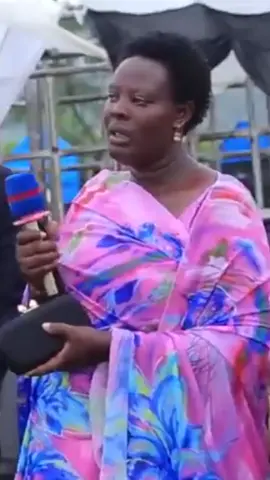Rabbie_Wrote
Region: ZA
Sunday 24 August 2025 20:14:07 GMT
191873
2933
690
1828
Music
Download
Comments
Mmako Siyasha Spelma :
It is important to distinguish between the actions of individuals and the institutional role of the ANC. In the case of the allegations involving Matjhabeng’s MMC, Mojalefa Buti, it would be misleading to suggest that the ANC as a governing party directly orchestrated or sanctioned the awarding of this R15 million tender. The governing party sets broad policy direction, but procurement decisions and tender processes are carried out by individuals within municipal structures. Therefore, if wrongdoing occurred, it reflects the personal conduct of the official involved, not the collective decision-making of the ANC. It is in fact in the ANC’s interest to see such matters investigated transparently by oversight bodies such as the Auditor-General, the Special Investigating Unit, and the Public Protector. This is because persistent corruption undermines the credibility of the party and fuels public perception that the ANC itself is corrupt, when in reality, the misconduct often stems from individual opportunism and abuse of office. The ANC must continue to demonstrate that it does not shield individuals accused of corruption, but rather supports accountability mechanisms. By allowing full investigations and ensuring that findings are made public, the party reinforces the principle that corruption is not a reflection of ANC policy or ideology, but of specific individuals who betray the public trust. Ultimately, the narrative should shift from blaming the ANC as an organization to recognizing that systemic corruption requires strong institutions, transparent procurement processes, and decisive action against individuals who exploit the system.
2025-08-25 04:42:37
45
malebza302 :
ANC THEY HAVE DEGREE IN CRIMINOLOGY
2025-08-25 00:31:21
236
Wandile Siyabonga :
😂😅😂😂😅😂 God gives to those who give themselves
2025-08-26 13:45:15
1
TEBOHO MOHAPI :
This is the same man who hired all his siblings, his girlfriends and his mother in the government.
2025-08-25 06:59:42
5
M :
I know this guy. he look n sounds corrupt every time he open his mouth
2025-08-25 14:44:47
9
ObakengMoloele :
We voting EFF again
2025-08-25 03:44:25
109
peter :
how does an MMC award a tender to himself when he is not an official? it doesn't make sense.
2025-08-25 00:43:47
23
Washagang :
We are no longer victims. We are accomplices to this corruption.
2025-08-25 07:52:00
19
J’Ocnnor :
Nooo give him another one with the value of 200 million, gwatshwana mos they leave freely after this, they learn from the top 🤷♂️
2025-08-26 17:10:53
1
Khosikhosi :
ANC must go to jail...
2025-08-27 14:19:14
1
Jamearly :
Vote EFF
2025-08-27 03:49:24
1
user478020202860 :
ANC people are no longer hiding corruption. They are doing it daylight. South Africans must distance themselves with this thieves.
2025-08-25 00:23:45
244
Mavusana :
Guys the person who will vote ANC is 😳😳😳😳😳😳
2025-08-25 02:01:21
47
mmaletlotlo :
athe maspala wa rona ona le tjhelete e kalo😩
2025-08-25 19:29:16
4
mamotsekenna :
African National Corruption
2025-08-27 19:10:26
1
Xakamani Fuel ⛽️ :
His just hustling 😅
2025-08-25 11:09:31
5
user1153338186764 :
Ke bone solar farm ko Welkom. Matjhabeng e kenyeletsa Welkom? Ha a ntshe le ba bang
2025-08-25 06:08:42
2
Thembinkosi Mdluli :
we voting 🗳 any party except ANC those thieves, drugs dealers, stealing for poor,lairs
2025-08-25 08:35:49
16
Pearl Ntlebere :
They are there for tenders not for people who voted for them ANC African Nation Corruption That's what ANC stand for
2025-08-28 05:27:53
1
Godfrey Sello Monaheng :
Sies... Conflict of interest
2025-08-27 04:29:43
1
Reynold :
They are tired of friends and relatives they are no longer trusted😅😂😂😂😂😂 They are going straight
2025-08-25 10:00:49
23
miss me :
people are corrupt sies
2025-08-26 06:59:44
3
lin :
yhooo its so sad hey
2025-08-27 21:00:22
1
Lingo Mosela :
Buti le mosadi ba tshwanetse ke tronko no commission of enquiry ba bodile, he must just bring back the money 💵
2025-08-27 11:52:10
0
Rubisto :
Nna ko votela Dudula 💪💃💃
2025-08-25 05:44:32
2
To see more videos from user @rabbie_wrote, please go to the Tikwm
homepage.





